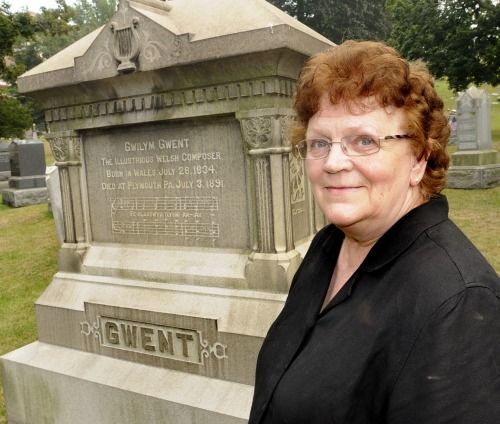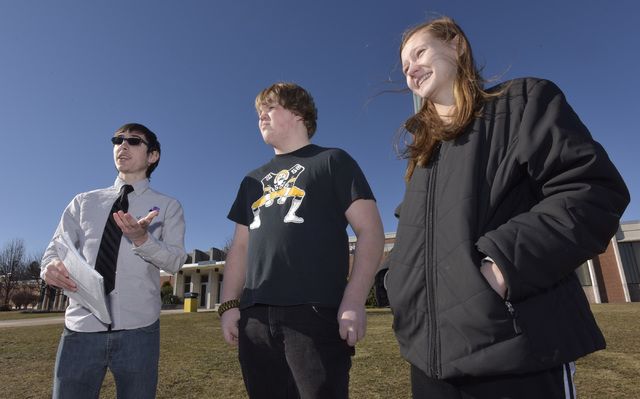Click here to subscribe today or Login.




WILKES-BARRE — When I think of Mary Jo Kopechne, I think about those final minutes of her life, trapped inside Sen. Ted Kennedy’s car underwater off that bridge on Chappaquiddick Island.
I think about those terrifying final minutes — her struggle to get free and her gasps for air.
These are horrifying thoughts, yet they are what most people think of when they hear Mary Jo’s name.
Mary Jo’s first cousin, Georgetta Nelson Potoski — their mothers were sisters — has compiled a book with her son, Bill Nelson, on Mary Jo’s life. They have decided to establish a scholarship fund at Misericordia University in Mary Jo’s name. Potoski graduated from Misericordia.
The book doesn’t mention Chappaquiddick. Georgetta feels enough has been said, written and discussed about that topic and now is the time to remember who Mary Jo Kopechne was and to tell the world about her.
Potoski, of Plymouth, wants this to be a fitting memory of her cousin’s life. A legacy of sorts to show that Kopechne was an intelligent, attractive, fun girl with an extremely bright future.
So three or four years ago, Georgetta started looking through photographs and memorabilia from the Kopechne estate and she wondered what could be done with all of it. She was determined to perpetuate Mary Jo’s life and all the good. Chappaquiddick would not be be a part of it.
Kopechne was born in Luzerne County and she died in 1969 and Potoski said nobody ever really knew who she was or what she stood for; all they knew was Kopechne was an unfortunate victim.
Because Kopechne was a great proponent of education, Potoski and her son decided to create the scholarship fund. The book will help get it funded.
The first 250 people who donate $100 or more to the Mary Jo Kopechne Scholarship Fund at Misericordia University will receive a copy of the book.
Potoski said Kopechne never had a chance to fulfill all of her dreams. Maybe the scholarship fund can help students realize theirs. She died eight days short of her 29th birthday.
Potoski said the book is not just a book about Kopechne — it’s Mary Jo’s book.
“It is a journal, a family photo album, a biography and finally, it gives description to a woman who has sometimes been a footnote to her own life,” Potoski said.
The book — titled “Our Mary Jo” — covers Kopechne’s ethnic background, her education, her teaching during the civil rights movement in Alabama and her years in Washington, D.C. It contains many letters sent to her parents, Gwen and Joe, after Mary Jo’s death from people who knew her personally. It also contains never before seen photographs of Mary Jo and the family. And finally, it contains many poignant family memories of a wonderful young woman.
Last year when I interviewed Potoski about the book, she had this to say:
“I watched Mary Jo’s parents wait their entire lives for justice for their daughter. They died without receiving it. Perhaps it was because they were waiting for a justice based upon her death. We seek justice of a different kind, a justice based upon her life. And this kind of justice is not only possible; it is eagerly waiting to happen.”
Kopechne was a teacher. She graduated from Caldwell College in New Jersey with a degree in business and education. She got involved with politics, rising to a key position with Bobby Kennedy.
In fact, Kopechne contributed to and typed RFK’s brief speech announcing his candidacy for the presidency in 1968.
Kopechne was a member of the “Boiler Room Girls” — a nickname given to six young women who were key members of Bobby Kennedy’s 1968 presidential campaign and worked in a windowless, hot room in RFK’s campaign headquarters in Washington.
Potoski wanted the book to be about Kopechne’s life, not her death. She and her son have self-published the book that’s being printed at Bayard Printing in Plymouth.
The book contains many personal stories, from the Kopechne’s life in New Jersey, to the 1960s and her experiences in Washington, to her funeral at St. Vincent’s Church in Plymouth and burial in the parish cemetery on Larksville Mountain, to information about Mary Jo’s parents, to continuing her legacy through a charitable foundation.
It’s a positive book. It reveals who Kopechne really was.
And that is, that Mary Jo Kopechne was much more in life than in death.








